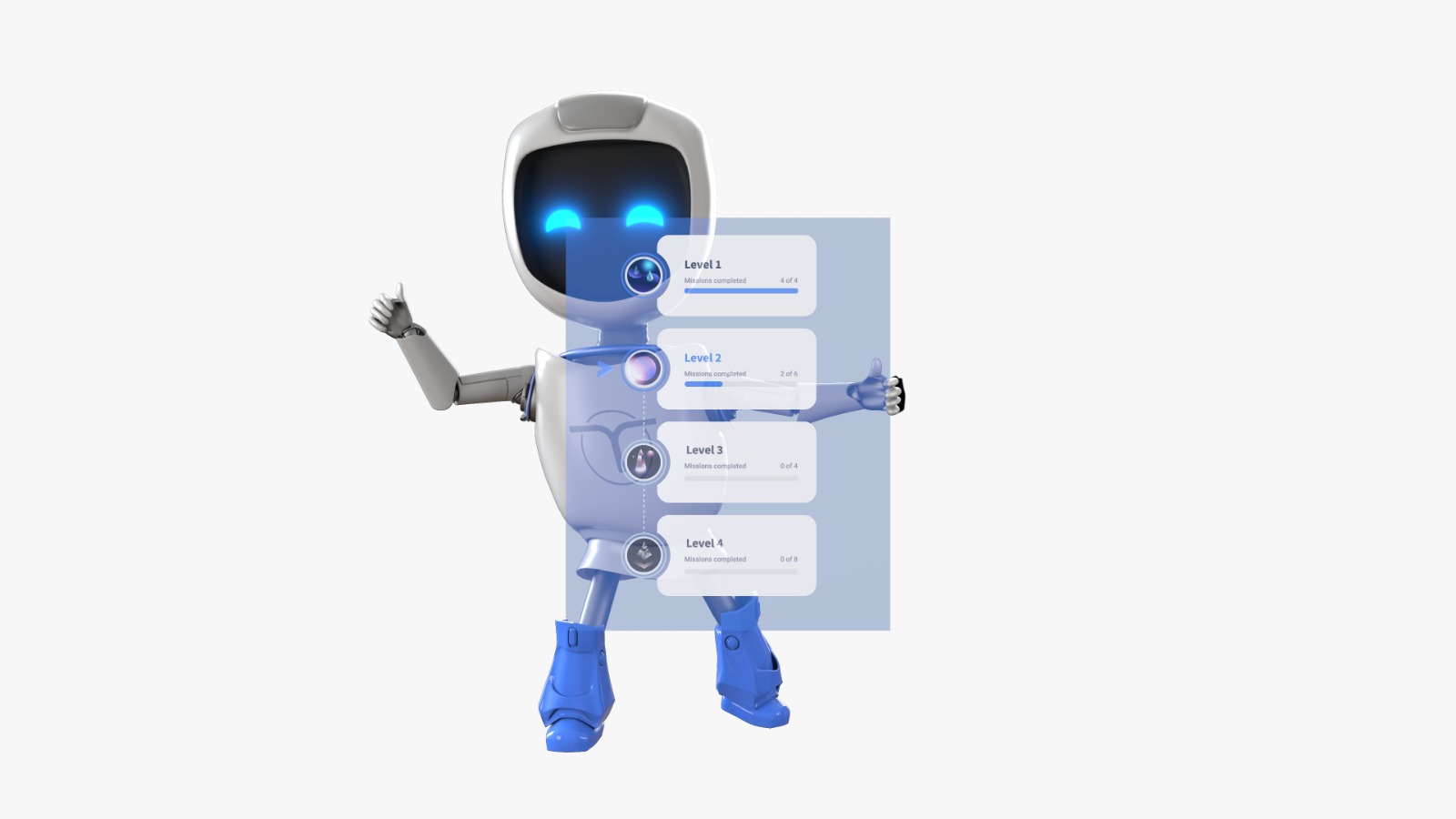One negative interaction could cost your brand a customer for good. In fact, according to Microsoft, 60% of customers would leave a brand for a competitor after just one poor customer service experience. Meanwhile, a 2024 study paints a chilling picture: organizations worldwide from different industries are putting $3.7 trillion at risk annually due to bad customer experiences. And with call centers being the front lines of customer experience, every call has the potential to either strengthen loyalty or drive customers away. While businesses focus on technology and processes, many overlook the importance of soft skills in call centers—which directly impact customer satisfaction and retention.
Soft skills—such as active listening, empathy, problem-solving, and adaptability—are what truly differentiate a frustrating call from a positive one. In an era where customer experience is a key competitive advantage, agents who lack these essential skills become silent customer experience killers.
Overlooking soft skills training puts more than customers at risk—it threatens the entire brand reputation and business standing. This article explores the vital role soft skills play in call center performance and why investing in training is crucial.
The Importance of Soft Skills in Call Centers
With the power of the internet, feedback can make or break a company’s reputation. A single bad review on a platform like Google can permanently stain a brand’s reputation, damaging its trust and discouraging potential customers. As ratings drop, so does revenue. Customers leave, profitability declines, and a once-thriving business begins to struggle, all because customers now wield more power than ever to voice their frustrations to the world.
This underscores why soft skills in call centers are no longer optional for customer-facing employees. A 2023 Gartner study found that enhancing customer value through service interactions can significantly boost loyalty. The study also reveals an 86% likelihood of boosting wallet share and a 97% chance of customers sharing positive word-of-mouth when they perceive value in these interactions.
Moreover, when hiring new employees, a report from the U.S. Department of Labor shows that employers are prioritizing communication, teamwork, and problem-solving skills over technical expertise. For call centers in particular, where stress and pressure often fuel negative behaviors, equipping employees with soft skills from day one is non-negotiable. Training is, despite popular belief, not just about learning, but about shaping behaviors.
Impact on Business Performance
So why do so many call centers still overlook soft skills training? The answer is simple: they prioritize rapid onboarding and quick time to productivity over proper training, often to replace lost talent or keep up with a high influx of clients. But this short-term thinking leads to long-term damage: high turnover, low morale, and frustrated customers—ultimately costing businesses more than they gain.
Studies show that call centers with poor customer interactions are at serious risk of losing clients and suffering significant financial losses. Meanwhile, U.S. businesses alone risk losing $856 billion annually because of poor customer service.
Beyond financial losses, companies that neglect soft skills training also struggle with:
- Customer Satisfaction (CSAT): Ineffective communication leads to misunderstandings, missed opportunities, and overall dissatisfaction.
- First-Call Resolution (FCR): Without problem-solving skills, agents struggle to resolve issues in the first interaction. This causes frustration for customers, who may need to make multiple calls to resolve a single problem, ultimately damaging the relationship.
- Employee Turnover: Stressed and untrained agents burn out quickly, creating a costly cycle of hiring and training replacements.
Understanding Customer Behavior for Better Customer Service
Traditional call center metrics like average handling time and cost per call fail to capture what truly drives customer loyalty: the quality of human interaction. Many call center leaders assume that following a script and resolving issues quickly is enough. But what happens when an agent checks all the technical boxes yet fails to connect emotionally with the customer?
Why Customers Leave
Slow service is not the culprit here. Customers leave because they feel unheard and undervalued. This underscores the critical role of soft skills in building lasting customer relationships. Today’s customers aren’t just looking for solutions; they want to feel understood and respected.
With an increasing number of options available, today’s customers expect agents to understand their needs, empathize with their frustrations, and resolve issues accurately. Call centers that fall short of these expectations risk losing customers to competitors who prioritize ongoing soft skills development.
On the flip side, a well-trained agent who listens carefully, responds with empathy, and solves problems efficiently can transform a dissatisfied customer into a loyal brand advocate.
Most Common Soft Skill Gaps in Call Centers and How to Combat Them
Research has shown that training focused on enhancing soft skills results in significant improvements in both employee engagement and overall productivity. One such study, done by three U.S. universities, found that soft skills training for female garment workers in India led to a 12% productivity boost and a 256% net ROI, highlighting the impact of skills like communication, time management, and decision-making.
While the challenges surrounding soft skills in call centers may vary, the impact of training is similarly profound. The issue isn’t just the lack of soft skills training—it’s how training is delivered. Traditional methods like long classroom sessions and static e-learning modules simply don’t work in the fast-paced world of call centers. To bridge these gaps, modern training methods such as microlearning platforms are becoming the norm.
Let’s take a closer look at the most common soft skill gaps in call centers and how modern training can help bridge them.
1. Active Listening
Many agents miss important details when they focus solely on resolving an issue or following a script. Active listening involves understanding both the customer’s words and their emotions. Without this skill, agents risk misunderstanding customer needs, resulting in repeated calls and unresolved issues.
Actionable Steps:
- Scenario-Based Training: Create realistic scenarios that require agents to practice listening and responding to complex customer issues.
- Real-Time Feedback: Provide agents with immediate feedback on their listening skills, helping them identify areas of improvement.
2. Empathy
Many agents struggle to truly understand and connect with customers’ emotions, which can leave customers feeling neglected or frustrated. Simple phrases like “I’m sorry this has happened to you” or “I understand your situation” can show that agents care about the person, not just closing the call. However, high pressure and the stress of the job often prevent agents from providing this level of empathy and attention.
Actionable Steps:
- Interactive Learning Modules: Train agents through interactive content that encourages them to put themselves in the customer’s shoes.
- Emotion Recognition Training: Offer training on identifying emotional cues in customer conversations, helping agents respond with empathy.
- Peer Reviews: Implement peer-based evaluations on how to demonstrate empathy in real-world situations.
3. Problem-Solving Skills
Lack of problem-solving abilities leads to escalations and unresolved concerns. The inability to troubleshoot effectively not only frustrates customers but also increases operational costs. Developing problem-solving skills is key to resolving customer issues on the first call, which boosts FCR rates and customer satisfaction.
Actionable Steps:
- Knowledge Base Access: Ensure agents have easy access to a comprehensive knowledge base for quick problem-solving solutions.
- Problem-Solving Simulations: Use simulations that allow agents to practice solving problems on the first call.
- Collaborative Troubleshooting: Implement group discussions and collaborative problem-solving sessions to enhance agents’ troubleshooting skills.
4. Adaptability and Flexibility
Call center agents must adapt to varying customer needs and evolving technologies. A rigid mindset leads to ineffective customer service, as each interaction requires a tailored response. Training agents to be adaptable allows them to handle diverse situations with ease, ultimately enhancing the customer experience.
Actionable Steps:
- Cross-Training: Implement training that exposes agents to various roles and situations, building their flexibility in different scenarios.
- Dynamic Learning Paths: Create adaptive learning paths that adjust to an agent’s progress, exposing them to diverse customer interaction styles.
- Real-Time Scenario Updates: Use real-time simulations that mirror the latest customer trends and technological changes.
5. Communication Skills
Whether it’s using jargon that confuses the customer or failing to explain a solution in simple terms, poor communication leads to misunderstandings and dissatisfaction. Communication also involves body language and tone of voice, which is particularly challenging in call centers where agents can’t rely on visual cues. Ensuring agents are equipped to communicate clearly and appropriately is essential to improving customer service quality.
Actionable Steps:
- Clear Communication Modules: Provide agents with interactive courses on communication techniques, emphasizing clarity and simplicity.
- Tone and Language Feedback: Use real-time speech analysis tools to monitor tone and language usage, offering suggestions for improvement.
- Script Refinement Exercises: Allow agents to practice rephrasing technical solutions in everyday language.
6. Conflict Resolution
Many agents struggle with managing difficult conversations, either becoming defensive or failing to de-escalate tense situations. Without proper conflict resolution skills, agents may unintentionally escalate the situation further. Conflict resolution training ensures that agents stay calm and find solutions to de-escalate tense situations.
Actionable Steps:
- Conflict Resolution Training: Offer specific modules focused on de-escalation techniques and maintaining composure under pressure.
- Role-Playing Scenarios: Incorporate role-play scenarios where agents practice conflict resolution strategies in real-time.
- Real-Time Feedback: Provide real-time feedback during customer interactions, helping agents adjust their approach as needed to prevent escalation.
A Success Story of Soft Skills Training
One company saw remarkable results from incorporating soft skills in call center training using the Code of Talent microlearning platform. The company reported that:
- Skills were improved up to 70% for all competencies, including for 300 client-facing employees.
- The capabilities were accelerated in 3 months instead of 6 months (as it happened with traditional training modules).
Code of Talent’s microlearning platform enhances soft skills through interactive methods, including gamification, real-time assessments, and simulations. With its AI-powered features, the platform can create personalized learning experiences by converting existing training materials into engaging microlearning journeys. This approach:
- Seamlessly incorporates soft skills training into your daily operations.
- Significantly accelerates learning.
- Reduces training time by half.
- Focuses on critical soft skills like empathy, active listening, and problem-solving, driving improved employee performance.
- Allows employees to engage actively, making them more likely to retain and apply what they learn.
- Continuously measures skill development for ongoing improvement.
- Fosters a culture of continuous learning, driving both employee and customer satisfaction.
Over to You
The success of your call center isn’t just about technical proficiency—it’s about the emotional intelligence and problem-solving skills your agents bring to each interaction. Soft skills in call centers are the driving force behind customer satisfaction, loyalty, and long-term success. Ignoring these skills can lead to frustrated customers, high turnover, and significant financial losses. Investing in soft skills training pays off, with measurable improvements in customer experiences, employee engagement, and overall performance.
Ready to transform your customer service? Explore how platforms like Code of Talent can help enhance soft skills in call centers, creating a more engaged, empathetic, and effective workforce. The future of customer service starts with investing in the right training.
Photo: Freepik






